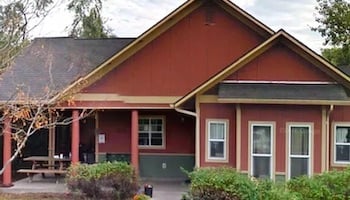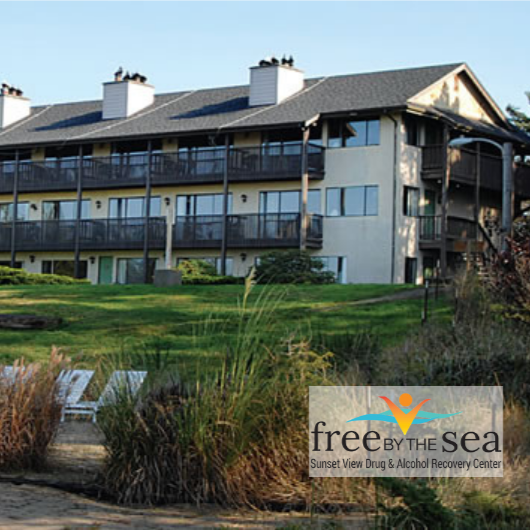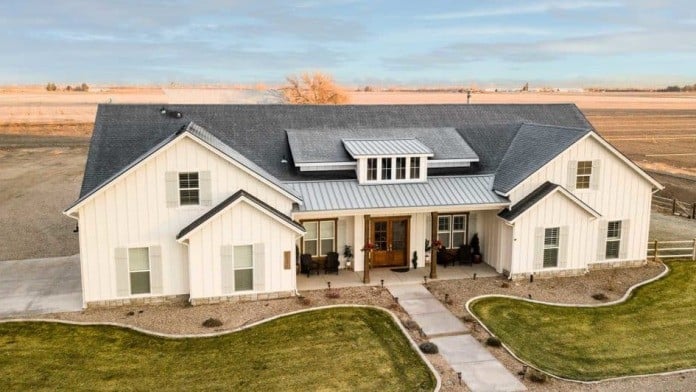Completely a waste of time, they never help you in anything.
About Western Montana Mental Health
Western Montana Mental Health was established in 1971 and serves Western Montana residents of all ages seeking behavioral health services. You can participate in comprehensive addiction and co-occurring disorder care to achieve your recovery goals. You’ll find ’em located out in Missoula, Montana. The whole region is known for its natural beauty and countless outdoor activities.
Their outpatient program welcomes adults by providing proven therapeutic interventions to meet you where you are in recovery. After an initial assessment, you can access a personalized treatment plan. Individual and group therapy, medication assisted treatment (MAT), residential housing, and community support are available. These approaches can help you understand and address addiction’s contributing factors and change your behaviors.
Structured Support to Regain Your License
What strikes me the most is their DUI program. You can participate in this track to reinstate your license if you’re facing a DUI offense. They offer assessments and educational workshops based on your unique needs. You’ll benefit from getting the help you need and learning about the dangers of operating under the influence.
Interventions for a Second Chance
Another standout feature was their court ordered services. They provide Misdemeanor Dangerous Drug interventions for those who’ve received a citation for possession of dangerous substances. These interventions can help you meet state requirements and avoid incarceration.
Quality Care Despite Finances
Latest Reviews
Rehab Score
Gallery
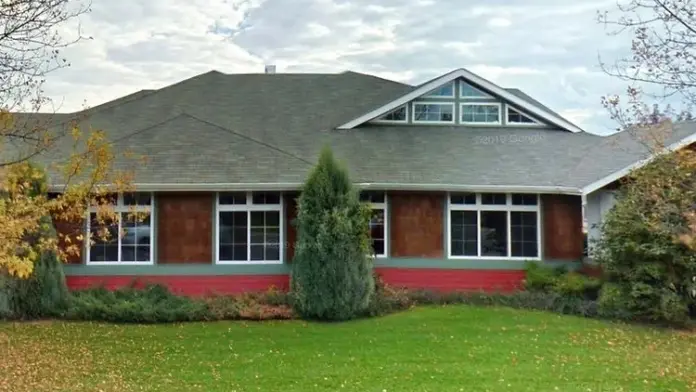
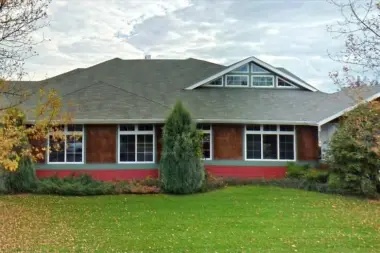
Other Forms of Payment
Private insurance refers to any kind of healthcare coverage that isn't from the state or federal government. This includes individual and family plans offered by an employer or purchased from the Insurance Marketplace. Every plan will have different requirements and out of pocket costs so be sure to get the full details before you start treatment.
Self-pay involves paying for treatment out of your own pocket. You can use savings or credit, get a personal loan, or receive help from family and friends to fund your treatment. If you don't have insurance or your insurance plan doesn't cover a specific program, self-pay can help ensure you still get the care you need.
Financial aid can take many forms. Centers may have grants or scholarships available to clients who meet eligibility requirements. Programs that receive SAMHSA grants may have financial aid available for those who need treatment as well. Grants and scholarships can help you pai for treatment without having to repay.
Medicaid is a state based program that helps lower-income individuals and families pay for healthcare. Medicaid covers addiction treatment so those enrolled can use their coverage to pay for rehab. When a program accepts Medicaid the client often pays very little or nothing out of their own pocket.
Addiction Treatments
Levels of Care
Clients enrolled in outpatient rehab typically reside in their own homes and many continue to work and/or attend school while receiving addiction treatment. The frequency and intensity of outpatient treatment varies based upon the clients' evolving needs. Many programs offer a full continuum of outpatient care, including partial hospitalization (PHP), intensive outpatient (IOP), sober living/halfway housing, and standard outpatient services. The most common treatment modalities are psychotherapy, life skills training, and medication assisted treatment (MAT).
Residential treatment programs are those that offer housing and meals in addition to substance abuse treatment. Rehab facilities that offer residential treatment allow patients to focus solely on recovery, in an environment totally separate from their lives. Some rehab centers specialize in short-term residential treatment (a few days to a week or two), while others solely provide treatment on a long-term basis (several weeks to months). Some offer both, and tailor treatment to the patient's individual requirements.
Clients who still need robust recovery care, but also need to remain in or return to their own homes may choose to enroll in an intensive outpatient program (IOP). These programs feature frequent, high-level treatment, often combining a variety of modalities, including addiction counseling, recovery education, and holistic therapies. Clients in alcohol and/or opioid recovery may also receive medication assisted treatment (MAT). Most intensive outpatient rehabs require clients to participate in nine to 20 hours of treatment weekly.
Clients participating in a rehab aftercare program have typically already completed detox and/or intensive inpatient treatment and are reintegrating into their home, workplace, and community. Rehab aftercare services generally include outpatient counseling, recovery education, holistic care, and medication assisted treatment (MAT). Many clients also continue to receive recovery support after being discharged from outpatient treatment. Case managers and care teams help clients access the services they need at each phase of the recovery journey.
A successful drug intervention in Montana requires careful collaboration between family members and intervention services. An intervention specialist helps the individual understand how their substance abuse is affecting themselves and others and understand how treatment can help. This professional may be certified as an interventionist or possess other mental health qualifications. They walk everyone through the intervention step by step, then provide follow-up services for treatment.
Often serving as the first step in the addiction recovery process, medically supervised detox involves weaning your body off addictive substances while in the safety of a medically supervised environment. If you are dependent on substances like alcohol, opioids, or benzodiazepines, the associated withdrawal symptoms can not only be uncomfortable, they can be extremely dangerous. In medically supervised detox, a team of medical professionals can monitor your health, vital signs, and progression to ensure your maximum safety and comfort.
Treatments
Many of those suffering from addiction also suffer from mental or emotional illnesses like schizophrenia, bipolar disorder, depression, or anxiety disorders. Rehab and other substance abuse facilities treating those with a dual diagnosis or co-occurring disorder administer psychiatric treatment to address the person's mental health issue in addition to drug and alcohol rehabilitation.
Mental health rehabs focus on helping individuals recover from mental illnesses like bipolar disorder, clinical depression, anxiety disorders, schizophrenia, and more. Mental health professionals at these facilities are trained to understand and treat mental health issues, both in individual and group settings.
Programs
Adult rehab programs include therapies tailored to each client's specific needs, goals, and recovery progress. They are tailored to the specific challenges adult clients may face, including family and work pressures and commitments. From inpatient and residential treatment to various levels of outpatient services, there are many options available. Some facilities also help adults work through co-occurring conditions, like anxiety, that can accompany addiction.
Young adulthood can be an exciting, yet difficult, time of transition. Individuals in their late teens to mid-20s face unique stressors related to school, jobs, families, and social circles, which can lead to a rise in substance use. Rehab centers with dedicated young adult programs will include activities and amenities that cater to this age group, with an emphasis on specialized counseling, peer socialization, and ongoing aftercare.
Clinical Services
Cognitive Behavioral Therapy (CBT) is a therapy modality that focuses on the relationship between one's thoughts, feelings, and behaviors. It is used to establish and allow for healthy responses to thoughts and feelings (instead of unhealthy responses, like using drugs or alcohol). CBT has been proven effective for recovering addicts of all kinds, and is used to strengthen a patient's own self-awareness and ability to self-regulate. CBT allows individuals to monitor their own emotional state, become more adept at communicating with others, and manage stress without needing to engage in substance abuse.
Dialectical Behavior Therapy (DBT) is a modified form of Cognitive Behavioral Therapy (CBT), a treatment designed to help people understand and ultimately affect the relationship between their thoughts, feelings, and behaviors. DBT is often used for individuals who struggle with self-harm behaviors, such as self-mutilation (cutting) and suicidal thoughts, urges, or attempts. It has been proven clinically effective for those who struggle with out-of-control emotions and mental health illnesses like Borderline Personality Disorder.
Group therapy is any therapeutic work that happens in a group (not one-on-one). There are a number of different group therapy modalities, including support groups, experiential therapy, psycho-education, and more. Group therapy involves treatment as well as processing interaction between group members.
In individual therapy, a patient meets one-on-one with a trained psychologist or counselor. Therapy is a pivotal part of effective substance abuse treatment, as it often covers root causes of addiction, including challenges faced by the patient in their social, family, and work/school life.
Life skills are the foundational abilities you need to manage day to day life and stress. They are a set of interpersonal and psychological skills that allow you to navigate challenges and perform necessary tasks. Training in these skills is incorporated into drug rehab to equip you for success in recovery.
Amenities
-
Private Setting
Staff
Bob Lopp
CEO
Cory DeStein, LPN
Chief Administrative Officer
Aubrey Reed, MA, MSW, LCSW,PMH-C
Chief Clinical Officer
Patrick Maidman, MD
Medical Director
Callie Holleran, RN
Director, Nursing
Keri Stephanoff, LCSW, LCPC, LBA, BCBA, CMHPP
Director, CFSN, MH Outpatient, Day Treatment, Case Management
Amberlee Jorgenson, LCPC
Director, PACT/MACT, PATH, Residential Group Home
Brittany Blair
Director of 988 Suicide & Crisis Lifeline
Theresa Marshall
Director, Human Resources
Colter Schilling
Director, Information Services
Ryan Bailey
Director, Support Services
Contact Information
1325 Wyoming St
Missoula, MT 59801
